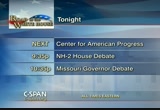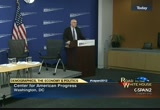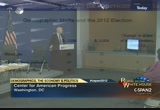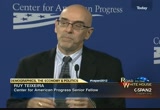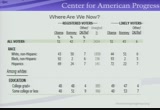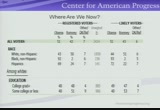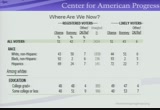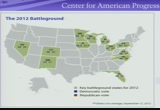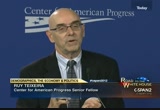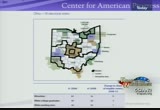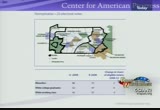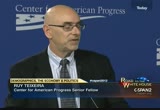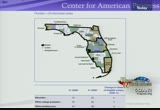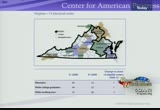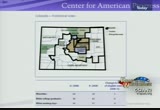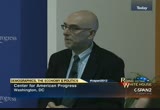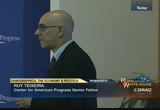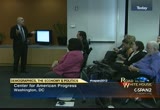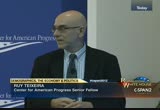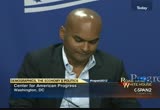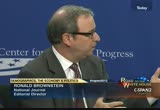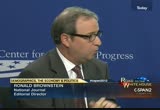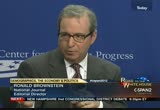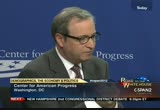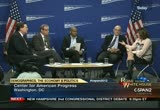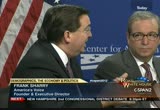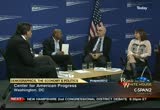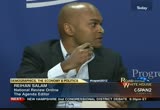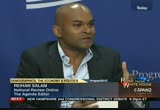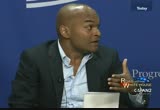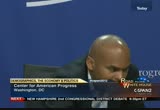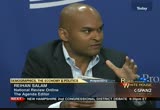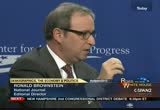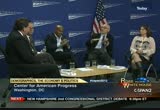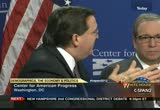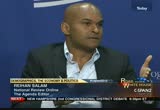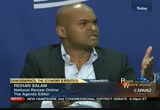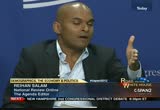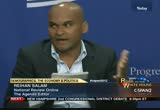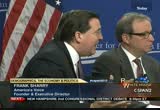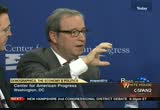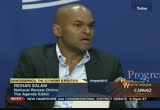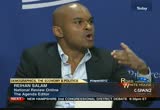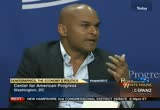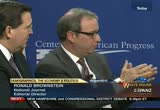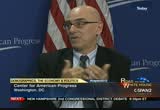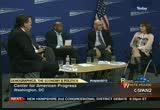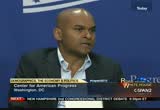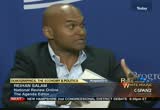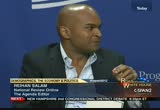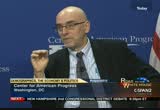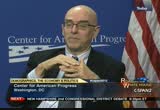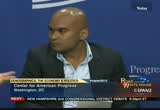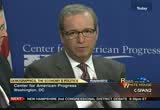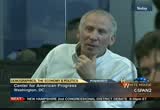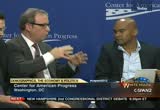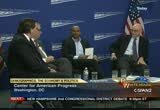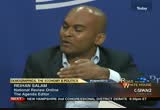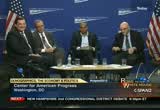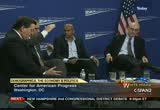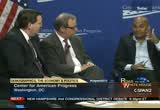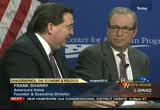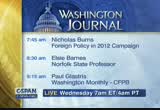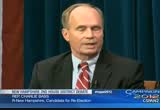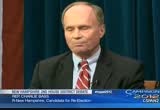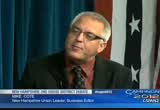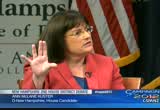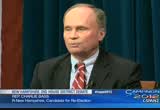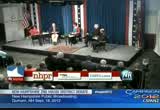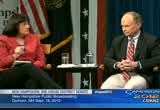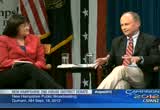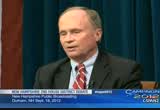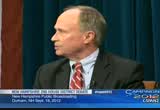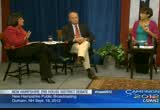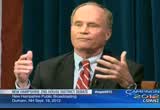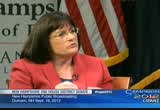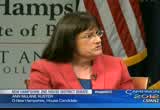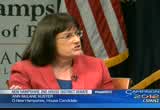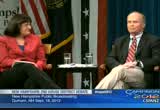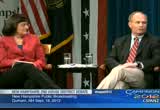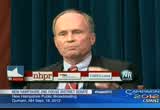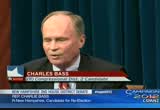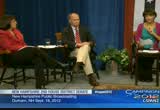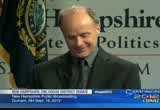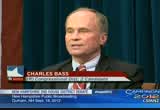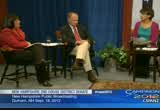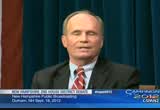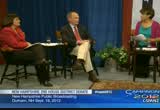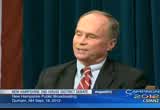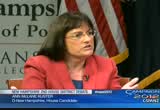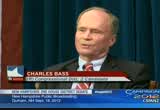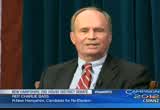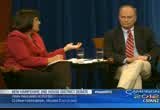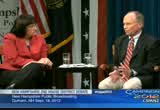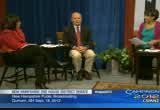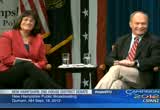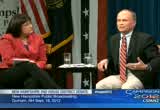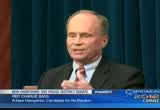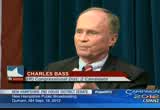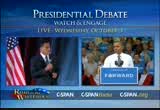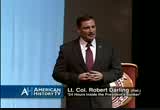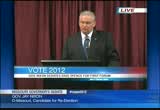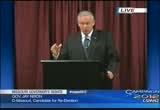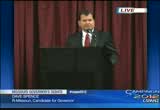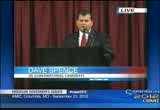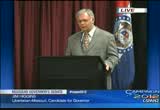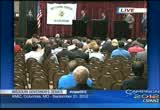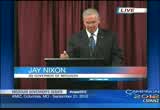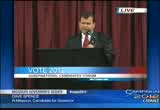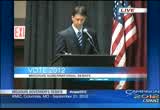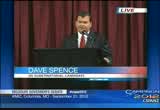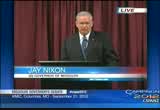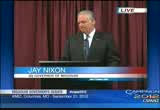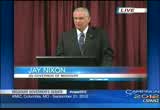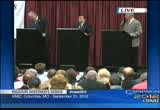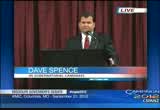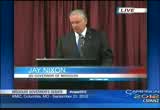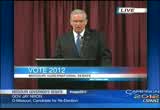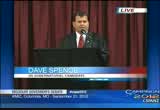tv Tonight From Washington CSPAN September 25, 2012 8:00pm-11:00pm EDT
8:00 pm
new hampshire of politics and political library, and to you at home for watching and listening, and, especially, thank you to our well-behaved candidates who stayed on target, on time, and republican ovide and ms. hassan. you can listen and watch forummer hoose at the website, nhpr.org and at nhpt.org. thank you. [applause] ..
8:01 pm
8:02 pm
we are just a few weeks away from the election been. in politics, it is a lifetime to much has been written about the current state of the election and plenty of people are concerned about the trends and the same economy in these times. most important of them who are the people who will show up to the polls in november. we want to have a follow-up discussion about economics, demographics, and the expectations for 2012. this is a follow-up for what was released in november of last year. with that, i am pleased to introduce my colleagues. the co-authors of the report they are releasing at www.american progress.org. after this presentation, you
8:03 pm
have a conversation with our panel and we look forward to hearing from you as well. i encourage you to follow the conversation. our guests recent writings include the european paradox and the decline of the working class and the rise of the mass upper-middle-class. he holds a degree in sociology from university of wisconsin, madison. i say about the game yesterday. [laughter] please welcome rich. [applause] >> thank you, everybody for coming. as daniella mentioned, this is
8:04 pm
about the report to be released last november. there is obviously a you -- adding about ideology because ideology has been injected quite forcefully into this campaign, particularly by the republican side. before we get to that, this first chart is entitled demographics for the 2012 election. it shows you how minorities, college graduates, and how working-class voters voted in
8:05 pm
2008. on the right-hand column coming see how much demographic change that we have. just among last four years, based on current population data. to some last four years, we have seen an increase of the share of eligible voters and it has decreased for the nonworking class. that is quite a bit of change in a short period of time. let's just talk about what these figures in 2008 mean in the figures for today. let's say obama gets again 80% of the minority vote. let's say it again, to actually
8:06 pm
be competitive in this race, it would have to go up 18 points in this election. that turnout does not change despite the shift in eligibility. 26% as you can see on this chart. it is now based on a recent poll that came out. i think it is the gold standard for polls. no offense to anyone else in the room who had their own poll. they do it right and they have a 3000 person sample.
8:07 pm
it is pretty reliable stuff. they give you a lot of interesting demographic rates. this shows among likely voters that obama is leading by eight a point. if you look the averages, that is high relative to the average. the averages from about four points. probably up by five points, this is within the averages. the overall topline, look at the black black at the margin, 91 points, that seems identical with obama's margin in 2008. seventy-two among hispanics and it is not that far off. also 22 for romney.
8:08 pm
what it means is that the idea that obama could get 80% of the minority again it's actually quite plausible based on this and other data. that looks like what it's going to get to. if he doesn't get 80, he will get 7 meters 79. as you can see by the right-hand figures, obama is actually doing better -- which is actually somewhat better than he did in 2000 and one he lost them by 18 points. remember what we said about the outlandishly large margin that mitt romney needs to be with
8:09 pm
white working-class voters. he is not anywhere close. that is the bottom line. this is true across many polls. you might see a margin of 20 points for mitt romney or a margin of 22 points. nowhere do you see the outside margin that he really needs to win the election. given how he appears to be holding support and then some of college graduate voters so that is where we are now in the national picture. as we know, these elections that we choose to have in the united states are not decided by the popular vote. instead, we have the electoral votes where everybody gets another vote for the states that allocate their electrical votes will so that gives us outcomes in a number of battleground states. this is as we laid it out in the first case.
8:10 pm
we have six states in the midwest area, ohio, michigan, and ohio, states in the southwest, colorado, new mexico and nevada. virginia and florida in the south. all of the states are pretty different. the six states in the midwest are much more heavy and have a slow level of demographic change and they are more bechler changing slowly. that is favorable in showing preference for barack obama could with that in mind, let's look at some of the particular swing states that are in play.
8:11 pm
more than any other state, perhaps ohio is one of the pogroms. a state that was believed to be for mitt romney, but if obama holds all six electoral votes, he is only four electoral votes short of victory. critical romney strategy in the state of ohio. that is not happening at this point. at this point, some of the data on the bottom, you see that the were served with the white working class and he lost by 10 points in 2008. his hope was that he could expend that much a part of it. that is really what romney strategy is.
8:12 pm
romney is not anywhere close to driving up that margin. he is doing no better at all for white college graduates. that is the reason why the state is looking pretty favorable for barack obama. also, if you look at it geographically, obama is doing well in the columbus area, just a swing region of the state. see this is true in a lot of other states. this is the great state of pennsylvania, which again, if the romney team could have put pennsylvania in play, it would've been the key to a lot of other electoral possibilities for them.
8:13 pm
the problem for them now is that pennsylvania is looking very difficult for them. obama running an eight or nine or 10-point average margin in the state. it is just not happening the romney campaign. it comes back to what appears to be the big hope for it to drive up the white working-class margin. that shows that romney is not doing any better. in some poll is he is making very little progress among white college graduates. basically, the state is looking very similar in terms of demographics. the same thing applies to the geographical distribution and how obama is running. definitely looking like romney
8:14 pm
might have a run. that's just not happening in michigan at this point. michigan is decisively on the side of obama. if you look at the geographical pattern of the vote. 44% in the detroit metro area, president obama had it in 2008. there is not much going on there for mitt romney. there is a three-point increase on the minority voters, seven-point decline among white, noncollege voters, eligible voters. these are huge changes and they go exactly against what is in
8:15 pm
the interest of the romney team. the romney team in wisconsin. maybe if they thought they would be able to take advantage what they believed to be this conservative white working-class voters by electing nominating paul ryan. they are making some progress, according to the poll, but some progress among white college graduates, but it's not anywhere close to what needs to take place. florida is a state, let's face it, if the romney campaign loses florida, chances of winning the 2012 election are close to zero. if we look at the pattern of support among the white working
8:16 pm
class, 17 points in 2008. we are not seeing any noticeably eager margin since 2008 among white working class voters. that is also being translated into similar margins in places like the corridor of the center of the state. by and large, not much progress is being made by the romney campaign. when we see again, minorities and white college graduate voters going up. the key state of virginia, among
8:17 pm
white working-class voters -- mccain carried this one in 2008. thirty-one or 32 points as they came back in 2008. to add to that, college graduate groups, obama lost by about 11 points in 2008 and he is basically about even among white college graduate voters in general. that makes it very difficult for romney to put together a coalition that can take this state. colorado has been a state that has been very close. obama has a three or four-point lead. quite a bit of demographic change. minority eligible voters down by three percentage points. the white working-class voters. they have gone down by three percentage points. again, it doesn't appear that romney 2008 among white college
8:18 pm
8:19 pm
2,082,008. that is a very quick maybe it is time for me to step back and catch my breath and say why is this? what is going on? so the health care reform act and so on, the stimulus, it was looked upon unfavorably by a lot of voters, and it helped the economy come back from cataclysmic disaster, it didn't
8:20 pm
exactly turn him into a picture of health. and voters tend to be unforgiving about things like that. voters can remember a few years back. voters really remember what they had for breakfast. i think we are seeing that, in fact, there is an influence on who ran before and how people see the current incumbent in that light. as we are seeing the economy pick up a little bit, but this is really helping obama to take the edge of the sole economic strategy for the romney team. it doesn't seem to be totally
8:21 pm
good during the term. the obama strategy, i think he understands what the demographics mean for the country in his political coalition. he understands the need to mobilize the groups that really make up this coalition. making sure they are enthusiastic about his candidacy. immigration and women's issues, things like medicare, you know, tax cuts for the rich, he has really been very forceful about contrasting his views on things with what he says are the views of the other side which is embracing the physician and the constituency who gets him in office. he doubled down and mobilizes his tools. he has tried to paint romney is an out of touch, pvate equity guy who would would not be one
8:22 pm
snowy white working-class person. i think the obama team realizes currently that there are some very offputting things about romney, which is all image. finally, we can't leave this without saying a word about republican performance. it has been designed, you might almost say. we sit down and try to optimize the things that you might say and raise concerns among independent voters. they probably couldn't have done much better. this, i think, reflects the way the republican party, to some extent has been captured by elements who are far away from the medium voter.
8:23 pm
and this type of approach to american society. it is far away from the political center. to some extent, delightfully honest about where today's gop is coming from. good economics about public policy. that has been a great thing is sort of, you know, let's just say they maximize their opportunity. i hope you guys are going to check out the report and look at some of the coolmax and charts. in the spring of this great
8:24 pm
panel. we are going to discuss these discuss these issues. why don't you all come up here and we will get started. >> okay, i'll be here and you guys are human. >> let me briefly introduce the panel. savanna greenberg, one of my very favorite posters. not only does she take the pollsters to the nation, but she also has very interesting things to say. and then we have one thing to
8:25 pm
mention. this guy is a great blogger. ruy teixeira. if you're going to read a conservative blog, he's a great writer. and we also have ronald brownstein. he is devoted to demographics as i sometimes say. if you're just going to read one columnist about 2012 election, ron is the guy to do it. and finally, frank sharry. he has done fantastic work and a long-term student of the latino vote. let's start with you, ron. let's shed some light on these issues. >> yes, i will try to take what he said and put it in a framework for a couple of minutes.
8:26 pm
from 1968 to 1988, republicans won five out of six times for the white house. he talks about a republican lock on the electoral college. if you look at 922-2012, democrats won. same thing with 68-2000 and eight. the first is a change in a change of the electorate. in 1984, 65% of the total vote were noncollege whites. 27% were college-educated whites and 12% were minorities. since then, the minorities doubled to 26%. the noncollege whites all the way down to 39%.
8:27 pm
you take reagan's share of the vote in 1984 among noncollege whites and protect them in the 2008 election, the other thing that changed is the democrats in the first decades after world war ii, come about again change in the 60s and 70s. seventys and 80s. college and noncollege, today in polling, it is nine or 10. i would argue that obama wins and once it gets done, it produces an environment in which all the numbers we are talking
8:28 pm
about, "a-team" 40. as you want, you want 80% of nonwhite voters. those voters represent the 20 present as they did last time. the internal composition of the white vote is changing in a way that makes it more accessible for him to get there. to me coming have to look not only at education but gender. it basically creates four quadrants. if you look at 2008, noncollege white man. a noncollege white women, he will drop. the fourth quadrant was the college-educated white women. in all polling, including ours,
8:29 pm
tcs holding a majority. if obama can hold that 80% among the minorities, with it is what reagan won in 1984. i will end with two quick points. one for each party. it is not a comforting message for democrats as well. the general trends is allowing to win a majority with a smaller number of white people. they are also winning a number
8:30 pm
8:31 pm
it was almost entirely on the back of this though. every serious thinker in the party realizes 61% of whites are 62 or 63 -- but the existing coalition is so dependent on the the portions of the white community are still uneasy with the democratic change, but they are just paralyzed. the footnote at the end, any state that provides tuition to illegal immigrants, every white kid in texas could not get a program. that is sort of what they are grappling with, persons, if you talk to karl rove, we have ways to reach out to hispanics and we
8:32 pm
should do it, but they have ths leash. after the campaign, if obama wins, it is hard to imagine that conversation. >> what are you seeing in your poll? is it consistent with what ron had said, especially about some but gender politics? >> guesstimates up record one of the interesting things you were talking about was the way that the party has been talking about critical women's vote. and they have been underperforming for obama and congressional democrats.
8:33 pm
even so, obama is still underperforming with women. he wants 54% of women. right now he is winning by about nine points, and he has 49 or 50%. really has to get more like 51 or 52 to actually win the election. it's not the majority women. there is no group tickets were enraged, whether it is planned parenthood board or others,
8:34 pm
abortion is such a litmus test to see change in any party, obviously. >> stealing 10 speaking of that, unsocial types issues, it's thew research poll is at all correct, why is academic what is animating that? will they show up? >> two good questions, will be the margins and the turnout. the challenge for obama is on turnout. there has been a lot of disappointment. but the enthusiasm is surging in some of the polling among the latino voters. it is important to remember that
8:35 pm
karl rove had a brilliant strategy about hispanic voters. still, it was a remarkable accomplishment. now, romney is polling at best in the mid-20s. over the hispanic vote. his own campaign have said they need to reach 30% to be competitive in the states where the latino vote will be critical. the republican party has done, george w. bush, karl rove, john mccain, let's reach out to hispanics and it has become a party that mitt romney -- well, he says that arizona as a model, the dream act that he has a radical policy prescription, health deportation, the idea of making life miserable here and immigrants are little encouraged
8:36 pm
. this lurch to the right, that strategy means, if you point out in your excellent paper, really, the southwest is out of reach for them in a large part because of this. they are pulled out of new mexico. they had a shock in colorado and nevada. if the turnout is high among latinos, it is not much of one. essentially, the romney strategy has been the economy. cuban-americans in florida, in hopes that we can have just enough of them, because maybe that will be the check, the problem is that even the hispanic electorate has changed. the fastest growing group is the non-latino immigrants who is a litmus test issue. we have part of the latino electorate at stake in a book
8:37 pm
about all this? would he make of all this? do think this is correct? >> let me just say that i disagree with what was suckered for immigration, there is a fascinating moment during a republican presidential debate during which it had mitt romney and rick santorum agreeing that we need immigration reform to attract more high skilled immigrants. literally they were having this conversation amongst themselves. that romney gave a speech about immigration reform this is marginal issues, interestingly
8:38 pm
most recent years that we have data for. we have more representation from asia than you do from latin america. it is also true that the immigration debate is framed in some way by some of us and framed by others. and that is important to keep in mind, particularly as the composition of that service. i see these questions a little bit more differently. i see emerging strategies versus political strategies. and we are talking about this, a lot of what we are arguing about is the space in which you have a large number of college-educated white voters and also, these are folks who are facing and being buffeted by all kinds of structural change. the idea came from in 2041 a lot of these voters.
8:39 pm
and then suddenly you are announcing reform measures that create anxiety. so on the other hand, look at the affordable care act in the debates surrounding health care perform. a lot of voters are older, a lot of them have a lot of anxiety and there is this emerging strategy in which you have policy, in which they are creating new entitlements and drawing on old entitlements. the message for many republican politicians and activists, wound up being cut. that proved to be very potent. it proved an emerging and deliberate strategy. republicans in practice are receptive these things. we recognize these opportunities to arrive when they have entitlement entitlement programs
8:40 pm
in exeter. they are not actually going and looking at this, but how we move to the center, how do we frame things more constructively, they actually get into that after the larger policy arguments rather than beforehand. that is actually a huge album. again, you're going to have to make those arguments regardless and framed us regardless. you want to do this in a way that is consistent. i would also say if you look to mitt romney, if you have a republican nominee from a state like florida or new jersey, i think you're going to have someone talk about this, but then you're talking about the dense, coastal states in which you are actually forced in a anyplace like virginia. colorado is a state where president obama was was really over perform. you have a large number of voters that are earning over $100,000 per year and a large number of voters who are unmarried women. he is not doing quite as well as
8:41 pm
he had been anticipated to do there. in ohio he is doing much better. i think that connecticut is a lot better than what people anticipated. you want to pick carefully and deliberately about the way you frame your policy. one reason conservatives were very unimpressed as the paul ryan for someone who is very careful to say that i put a safety net. we want to make it more sustainable for the future. that message has gotten drowned out, in part because of how it is framed. because they haven't been able to successfully counter the framing coming from the other side. partly because it doesn't seem organic and natural. if you have someone who can make that argument any more compelling way, a more diverse electorate, maybe we would see a very different result.
8:42 pm
>> and trying to talk about republicans back into it. they are back into it because of the nature of the republican primary electorate. it is hard to see in the short run when you have the force that is putting that romney into much more conservative positions than he might normally take. >> that is a great and important point. we see when you see people that are able to overcome that, george w. bush is a classic example. it allows him to get through the primary process without having to establish authenticity to the extent that that romney had here. that romney had some kind of serious, he had been running in the state fairly well. he won against english learners.
8:43 pm
so this is not -- this is someone who is a smart and determined person, who has a deep and organic connection it has been harder and it's not just that bush is good at it and romney is not. >> i think it is a very important point. no questions that the current republican electorate is a leash to reach out and if you look at polling, whites are exactly in half on the democratic change going on in the country whether it is good or bad overall. among those who think that's bad, romney wins three to one. when you look at the republican primary, over 90% are white. an over 60% were over 50 years old. these are voters who gave very
8:44 pm
little leeway on immigration. far more important than any tactical decisions that were made. the big reason he is having difficulty now is the choice to use immigration from the right and also, the willingness to get caught up in the movement on social issues. despite the reality, it has been double digits every month of the presidency. also, a lot of controversy of the deportation is just unbelievable political practice. it's interesting to watch. if we asked frankie would say that why didn't democrats do immigration diplomacy. it is largely losing voters in fear of losing what they had lost.
8:45 pm
what i find interesting about the obama campaign is 2012 is she has taken a series of positions on contraceptives with the catholic church, and on gay marriage, where they have consciously accepted the idea that they are mobilizing this new coalition, the date of 57, it's hard to imagine that there might be a conversation with a republican party that the bible. >> we think about that?
8:46 pm
it is as simple as the republicans moving back towards the center on immigration -- clearly it doesn't look like it's happening now. >> it is not only about immigration, but marco rubio himself says that immigration is a gateway issue. not all latino voters, but many. this is where romney is not getting a hearing on other issues. even though many of the positions of the republican party are not in favor with hispanic population that is interested and invested in young people to be educated and have the support so that they can have a shot at the american dream. but ron and i were talking about this earlier.
8:47 pm
susanna martinez was the ticket this year. we would be having a different discussion about the hispanic vote. we would be talking about a bomb on the economy and immigration, how it is perfectly positioned to win the latino vote instead of the 25% that romney is heading for. it was shifted so dramatically that we would be talking about the southwest in a very different way. the republicans have an opportunity to reposition themselves within the community. john mccain himself says it starts with immigration. i think he is quite right. how does a republican candidate run the gauntlet of a primary season. she was determined to run is a pro-immigrant moderate republican in california.
8:48 pm
8:49 pm
the republicans do very well that is not true for hispanic republicans. i think it was really hard to run the gauntlet of the primary leicester in the short run. i have assimilated multiple generations and a lot of social issues, for example, a lot of topic changes, more recently religious, that is not always true. if you look at places like new mexico where you have hundreds of years of hispanic residents.
8:50 pm
moderation on those issues. so i think at any rate, it is very complicated and it's not a given. >> ron had said something about the hispanic unemployment rate. it is also true that when you look at the unemployment rate among african-americans come it has been high for some time. yet there is a constituency that overwhelmingly supports the election. when you look at latinos who are more affluent, they become more likely to become sensitive, and when you have a period during much of her mobility is very large and the constituency and is installed, that doesn't necessarily benefit them. that is the kind of open question. we are looking at economic stagnation for a decade, that will have a particular impact on the electorate. you talk about how this isn't a racial poll among latinos. if you look at the american voters and this idea of
8:51 pm
mexican-americans are a group that has been racialized in a political identity and composition. especially in los angeles. it is very strong. i think it is certainly a kind of localized phenomenon and economic stagnation will further deepen and entrench everything. one of the difficulties that republicans face is that republicans need upward mobility in order to make these among the single issues. i think it is a gateway trend that is a good one. another thing about taxes i mentioned, is that you have this -- is why i keep thinking of this as an emerging strategy. when you're looking at the opportunity for a republican candidate who does well among state like virginia and colorado, for example, romney is not actually over performing in
8:52 pm
the script. he is saying, tax cuts might resonate with them. they have changed considerably as the federal income tax basis changes. there are many conservatives who talked about the idea, instead of calling for more marginal tax cuts, why not call for a dramatic credit. that is an idea that a lot of us have talked about as well. >> is that an issue that really resonates. >> to your point earlier on, some people said that barack obama is someone who represented that vote as well as a jesse jackson vote. it is very formidable. the question is will you ever have a republican primary candidate that can unite those sensibilities as well read it
8:53 pm
was identical to him. now, the problem that he faces an initially he had the bush tax cuts in place, and for middle earth all come up on 10 earners, and he released a plan to "the wall street journal" editorial page. totally contingent. some of it doesn't seem to have moved to primary voters. when you look at their sensibility, that is what they do. but you can imagine them saying, let's do a really big child tax credit and let's get rid of the state and local taxes and essentially get a lot of these urban social liberal, upper-middle-class voters, paying higher taxes and a lot of parents of young children to pay to radically lower taxes. that's the kind of thing i imagine would resonatwith voters. a multiple level of credibility.
8:54 pm
i think that that is a problem for so many candidates do not. >> so it is not -- it is moving towards the noncollege voters. it was totally the upscale candidate. there was a real class divide in the race. there isn't an overwhelming balance, but an ideological one. something like 80% of republican primary voters consider themselves away. >> it could be like a mike huckabee, who had greater poet credibility or vice versa. i think he could see someone in a very different light. demand i think he did not have to do the things you did in particular. >> ultimately, he was running as
8:55 pm
rick santorum and he had choices that made life a lot more easier but it made it a lot more complicated. >> we are talking about what the republicans should do. the democrats have become much more assertive in this issue, and immigration, the democratic majority counsel, stay away from this issue, swing voters and put you on the defensive. what did barack obama do this or? >> he led into the issues. he said we are going to lose downscale white voters if you do this. they're going to hurt you with white swing voters and they did it anyway, and in fact, the response was quite remarkable, but it did lead to an uptick, lots of praise for progressive, and swing voters are glad that
8:56 pm
somebody did something about an issue that they find this way. it actually put republicans on the defensive. i think republicans have not only kidding themselves into a corner on this, but democrats are increasingly learning how to take advantage of that fact. >> there's a lot said about whites the point you're raising earlier was pretty key. it looks like if obama gets elected, it will be among white working-class voters. a little bit more, enough to get reelected and part of the coalition. but how do you keep them down on the farm? what should the democrats say? what appeals to these voters. >> first of all, republican consolidation, too. right, i think, first of all, if obama wins in the selection, it is almost certain that his
8:57 pm
noncollege when number will go down. in many ways, it will be as described as a victory 40 years later a basically upper-middle-class whites and minorities. of which there were not enough of them in 1972. but first of all, one are normally worth noting. obama runs better in the upper midwest than he does anyone else. and michigan, wisconsin, iowa. those four. the numbers are a little better. he is running at like 44 or 45 in ohio. part of that is the auto industry, more of a union type of tradition. the reality is the big anomaly. fewer of the white working class are evangelical, which drives it down economically.
8:58 pm
>> it is actually working in obama's favor. these are voters. these are parties, neither have shown that they can deliver positive economic results in their life come in right now is that republicans won't take my money and give it to people who deserve it, which was and is essentially part of the politics. republicans, think it's going to be difficult to the fact were there winning most of them. obama seems to have redeemed himself. now he is back where he is looking at modest losses. around 36%. i think it is very hard to figure out your coalition.
8:59 pm
the key was providing tangible benefits like health care. maybe when it goes into effect, i think it will change, but i think it's a difficult challenge you mention in particular, michigan, wisconsin, ohio, where you have labor battles in republican control. democrats are doing better in the states where you have really -- even if they lost to governor walker in wisconsin. you have a major impact to have a discussion about workers and labor. it was somewhat on the decline, but it is a way to think about
9:00 pm
it with white blue-collar voters. >> a big part of your book. do you think it is a matter of the benefits and the changes were talking about? >> when you look at the export oriented states, you look at ohio and iowa, these are states that are much better in the national economy. that is one of the reasons why a lot of people said, why is romney talking about the deficit. much of the reason is that when you look at states, iowa and new hampshire in particular, this is an issue that resonates as an almost psychic quality that resonates in this region. i think that that is one thing to keep in mind, one of the ways in which you have these kind of strands that don't always coherent way that works for you. i think that that is one thing to keep in mind. you know, it's really interesting to think about.
9:02 pm
gotten it right in talking about how we actually care about the safety. it matters a lot in a free enterprise society geared we actually need to have this. or it's not actually some kind of saying that we garnish on this ballot, but an incredibly important part of making the whole system work. the problem is that ryan, the reason he excited at this as further reason, the way he gives a very apocalyptic language of the threats to free a price and what have you. that is one reasons why governors have a big advantage over legislators. someone like mitch daniels, for example. he had a higher share of african and latino vote, but he is someone who talked about very conservative ideas. he also rolled back to collective bargaining and has stayed. and very prosaic ways, were not
9:03 pm
very ideologically charged. yet people recognized him as one of them, but on the other hand he was able to reach beyond the base by talking about things at the basic level of how to improve the provision of services. he also was deeply interested in the workings of the medicaid program, for example and make it more accessible and improving. so i think that is a very tracked to model and i also think a lot of conservatives think what would a have looked like? he has a lot of liabilities and that's not a terribly charismatic guy. on the other hand, it would've been an interesting contrast with the president. >> you know, you noted the minority share of the eligible voter population at three points, but she also noted it's not clear whether that would be reflected in the actual electorate. what is the history?
9:04 pm
how closely does the growth track with the change in the electorate because all the revenue calculations are based on the vote remaining at least as high as it was. if you could rack over the last 20, 30 years and you see a three-point increase in the voter population that's minority. >> that's kind of the problem with the romney strategy assuming there'd be no change because it flies in the face of historical trend. generally we have seen the reason why binary these share a voter increase like clockwork every year for decades is basically because they share of the population and also eligible voters is a little fast. so the things tend to track each other. it's a really certain a wellness election, but it is a safer bet that it will then that it won't. but i can understand why they like the assumption because we were going over. it just makes the barrier thingy
9:05 pm
to cry so much higher than a couple points. >> it seems like not totally existing. but it goes up to 28 and obama goes up to 81 or 82. the right number becomes vanishingly small. 37%. i think for a lot of people is going to be a big adjustment to what it means to b in the country. traditionally black majorities have picked the president. obama is the first by double digits. not never done that before. again, in terms of long-term stable majority while winning only four to one of weise's heart you have that happen. but you know, the idea is kind of a wake-up call for the country that we're living in a different place than many of us grew up, especially the baby boomers is overwhelmingly white. >> i can't remember the national
9:06 pm
journal. the majority of the democratic caucus in congress in 2013 will be either women or minority. and so, if obama wins come of such small share and you have the minority caucus. it reinforces how different the democratic party will be from the republican party in the long run. in the short run is going to cause a lot of anxiety and stress. >> which may be happening. >> i think it probably is. >> i can't resist since you are to some extent on the conservative side of the spectrum here. let's say for the sake of argument that in fact obama does win this election. there's going to be a lot of disappointment on the republican side. how do you think the debates will play out in the people in the party will grapple if this does happen to some of the
9:07 pm
issues have been discussing. >> there is a way will both disappoint conservative activist and will disappoint democrats. the reason why ideologues like me care about the election is the affordable care act. i think when you look at a lot of folks on the right, there is a real belief they create universal health system that is going to prove problematic. you also hear this from a lot of liberal policy scholars as well that kind of basically divide between esi and the exchanges is a tricky one as hard to see how exactly that's going to play out. we could have a debate, the regardless that the basic idea this will prove far expensive and consequential than understood. get it is extremely difficult to retrench. certainly people say gosh, bill clinton's security act was completed, but over the subsequent 20 years you did have a number of expansion after his
9:08 pm
boat in the medicaid program that the public rolling coverage has expanded dramatically. so i think it's very hard to see how you reversed the creation of the exchange and i think that it will evolve into a different system and something that conservatives and liberals will duke out over. i think it's going to make coverage absolutely essential to our politics. and so, then you're going to see a generation of republicans who would reconcile themselves to an basically talk about how to be fixated? fanuc investments or how much medicare would cost 30 years out when the program was created, they did not quite come true. in a way it is a lesson for republicans because in 1964 you had goldwater served as the nominee and the result of that was you had enormous democratic super majorities and you are able to see the creation of programs when you think about conservatives right now, fiscal
9:09 pm
conservatives are still wrestling with the legacy of medicare and medicaid, programs that have been created during that period when we got this person who was ideologically appealing candidate, to pave the way for a genetic change in the size and structure of the federal government. so i think yeah, you'll have linda lingle in hawaii who said she doesn't want to get rid of the affordable care act. that is going to become something. i think it is that a lot of progressives are hoping for. what it means however is that democrats might actually experienced losses while the progressive goal is proving durable might be achieved. >> great, fantastic discussion. let's turn it over to the audience here. read in the front row. >> hi, my name is tomball, owner illustrators magazine do with urban notch partners, a lot of
9:10 pm
shift. each acrobat deals with coverage. per the 2010 census and if you actually extrapolate the data to what their project and now, you're kind of looking not 38% to 62% as far as weight minorities to minority split non-hispanic white and then you add about 120 million minorities so is there any data you have that she was speaking about, even if it was 28%, you're still tracking 10% last than the actual population composition in america. so do you have data that shows how the population demographic breakdown in comparison to the voting participation? >> right, while the share of eligible voters in the united states who are minorities is probably at this point about 29%
9:11 pm
or 30% convinced was still comes in below its share of eligible voters. and he says he said if you get 20% in 2012 but still below the voters, which in turn is below the population because the citizenship issues in the age issues basically. so that's the reason why you see the difference and that is primarily by hispanics in a sense of a different spirit between between a minority share of the population as a whole. >> think frank whitaker at this, but bill frye who does a lot of work with voip says the gap between the minority share of the population and those should erode as an accelerating rate over time because so much minority population growth are now nativeborn hispanics who are citizens. 50,000 nativeborn hispanics turn
9:12 pm
18 every month and will do this for apparently 20 years. so in theory is this eight-point gap or so between the minority share of the population in the eligible voter population should be narrowly more quickly than it has because so much of the growth has a natural increase. >> just to add on hispanic vote, for example, large number who won't vote this time. there's like 23 million eligible hispanic voters in the top estimate is a little over 12 elion people who vote. that's about half. on the other hand come to 12 million is a 26% increase over just four years ago. both things happening at the same time. even though there is a huge train eligible and participating voters.
9:13 pm
>> it's pretty hard to overestimate the importance at this point. there's obviously mitigating factors that made the increase in minorities does not dramatically translate into exactly the level among voters, for example, siouxsie and the population. that never the less means of population goes up voters go. so people should never assume just because minorities, especially hispanics are less likely to be able to vote, that means the trends that will produce an increase in hispanic would be an incorrect inference. okay, right here. >> i name is stephen shore. there were two swing states from four years ago you did not talk about in terms of this election, missouri and indiana. are those two in the romney capped out to be part of the swing states? >> may be people on the panel
9:14 pm
would disagree. i certainly see it that way. there is no reason upon us and shouting distance and indiana. the best he's done is to be forefront points down. most of them have far larger marks. if you look at that state, the actual demographic and geographic shifts taking place within this date seemed to be making up more conservative over time thomas, which is quite a niche one state these days. even though missouri was razor thin margin, most people see that is getting much wider this year in the direction of the gop. >> people often point to a place lakeway county in north carolina is making up more liberal or democrat leaning than otherwise. the thing is people come from somewhere else. so in general, if they're coming from the northeastern united states, that could theoretically play as people go to northern virginia. that could still be true, even
9:15 pm
if it still is overwhelmingly democratic as kids become under the right circumstances. >> basically what is happening when i first started serving in politics 1980s, the elections decided by the midwestern swing states. and as subtree pointed out, heavily blue-collar. now what is immersed in the last eight years really is the second pathway that's available to democrats in previously heavily red states that are the opposite, very much is producing versus obama himself embodies. they're well educated educated and diverse. the southeast conference of north carolina, virginia and nevada, colorado and new mexico. in the long run it's striking how well obama is holding up in the states. in the long run, places like
9:16 pm
this where democrats build a coalition of minority and college class whites are socially liberal does seem to be more the future of the party. although the selection surprised me he's been able to run as well. >> there is also different flavors and types of demographic teams taken place in the midwestern states. if you like in ohio, students like this when i talked about it, but according to eligible data about a bear has been no increase in ohio in the last four years than there has been a slight one-point increase in college voters. very unusual. so it's kind of interesting despite all that romney isn't doing any better than mccain. that is different from a state like wisconsin we talked about what there's lot of demographic change going on. pennsylvania's also stay but there's demographic change. we see minority populations in the eastern part of the state, where really although those are
9:17 pm
taking place and so on. so these states vary in terms of the raid and type of demographic change their happening. some are change at all like ohio and iowa. some are changing fairly rapidly than the midwest. ratepayer. [inaudible] >> i am a fellow at the university of maryland and i would just like to know if there is any research data on the voters enthusiasm in the last few weeks. i mean, especially among democrats because there is a balance at the convention, but i don't know if there's a danger for the democrats now that that daisy romney is so weak. >> we are worried about that, but the most recent data we have
9:18 pm
come to the national data further research center shows the enthusiasm between republicans and democrats is essentially vanishing. so something is clearly happen to backup enthusiasm. i guess if romney appears to vote increasingly troubled campaign, maybe they'll decide, but i doubt that'll happen. and you were talking earlier about latino enthusiasm that seems to be growing as well. >> earlier this year the numbers were terrible and we actually were working with latino decisions in the field when obama made his announcement in may to protect the young people eligible for the dream act. so we were able to do it before and after it was quite a remarkable difference. the enthusiasm at that point would be sustained until election day. according to the tracking poll they released comments actually gone even further wrath. we saw this in 2010, two.
9:19 pm
there is a narrative hispanics did not turn out in the election into a large extent they didn't, except in places like nevada, colorado and california but they were largely the firewall to save the planet, the first time since 1930 in an election, both chambers to play. so a remarkable performance. again, these are states that george w. bush carried in 2004. nevada, colorado, new mexico. new mexico is basically no longer a battleground state. >> gentleman way back there. >> there's actually two of them. take them in sequence. >> hi, randy sand. there are a group of voters often described as socially liberal, but fiscally conservative. is added large group in numbers? and if so, why did they seem to
9:20 pm
be getting very little respect during this election cycle? >> broadly speaking that's the white upper middle class whose father visited individual reception to be right of center on economics and on social issues and that in fact for the increase in comments at those issues of the 1960s as a reason for what i called the inversion, the fact that democrats now run better among white collar which is a rare pattern in the industrialized world for the liberal party. and the reality is if you think about wises four quadrants, today the road from his position mystery of the the four quadrants, the college-educated men, running three or four points down. blue-collar men, maybe five points down in the blue-collar women, down three or four,
9:21 pm
little bit like that. but the fourth quadrant, the college by women, the most affected by social issues. in many polls getting up to 54, 55. so this is part of the issue for republicans that a strategy built on emphasizing economic discontent. a big chunk of obama's vote at this point between minorities and white women are not fundamentally economically-based voters. they vote on other stuff. women vote on social issues, minorities on a sense of respect and you want me here or not is pretty much where the immigration status gets down to. so i think it does matter a great deal and i think you were saying before that it creates a model for republicans and men on some of the issues making it so issue for democrats. by the way, by women vote democratic in for the last five
9:22 pm
elections and a former seal may only one they did. this is not something new. this is a structural change part of our politics, the reason why these white-collar suburbs outside philadelphia, outside detroit, outside cleveland have shifted from republicans from 60 to 88. with that in no way replaces like northern virginia, suburbs of charlotte and raleigh and denver followed them, which is why those states follow them. 60% in 2010 wasn't just hispanics. socially liberal women and obama today in the last poll that came out as 56 or 68% among white women in colorado. >> abortion is a high-intensity issue on both sides of the debate. when people talk about how they had to abandon their position on that issue come you don't want to forget that. >> funding planned parenthood,
9:23 pm
which every republican presidential nominee endorsed another republican in the house voted for. i agree, abortion is what it is and you do have this divide, but other elements, time perception came in and away previously, but obama pulls his vote despite other views. >> when you don't have soft dollar donations to the parties coming of democrats as republicans in the 70s post the first wave of campaign finance regulation, having to rely on donors, so that shapes what is the issue mix they pay most attention to. >> immigration is not an issue that is a core based republican conservative issue. there is a sizable but minority group within the party who cares very deeply about it. but why has it become the position of the parties now when in fact there is such a huge and growing voter bloc for whom it's an important issue.
9:24 pm
>> we might have different views about this. i imagine they do. i think when it is framed and refracted through the prism of the media, this stuff doesn't matter. all that matters is are you going to build a fence? i think there a lot of folks who believe gosh, we need more rigorous immigration enforcement. i also think again it's about how are these things are presented and what are you obligated to say when you are pinned down? do you believe in enforcing these laws that seem problematic or not? the whole idea of which are in fact, the whole concept is welcome that these are the good case. the thing is i think they're right, it doesn't mean that you're a bad kid if you're not an community college or maybe you got in trouble in your teenager, it doesn't make you a bad person. there's something very disingenuous, but that's because advocates want to structure in a certain way.
9:25 pm
i don't know how much of this is rooted in many believe prior to the way the reaction to structure the conversation. i do think advocates have structured the conversation advantageously, which is their job. >> thank you. >> just a couple more questions are never going to have to cut it off. so maybe back there and also to your right. >> hi, terry watkins. i was wondering if you could all just the millennialist, especially looking forward in terms of democratic party strained. >> also the gentleman over there. >> tanks a lot. thanks for the forum today to the panelists. mr. brownstein, i could give a about the fans. you are the derek cheater a political analyst, so i appreciate it. >> albright. >> could you guys examine the role of the old dominion in the
9:26 pm
election growing democratic diversity in northern virginia, laramie county, the target rich environment for the obama campaign, the former governor whose popular question and the president is popular also in how emblematic the race may be for the nation. the other thing is given the long habit of being the party of the patrilineal succession, who is in the on deck circle? who is living on deck circle for the republicans should governor von medusa cycle? thanks again. >> okay, so i feel it virginia is the tipping point state this year and that i feel if you have to pick one state and whoever won at it's most likely to win. i was out to west virginia. now it might actually be -- it's not ohio because romney can win ohio and still lose. in virginia it really shows the two modern coalitions. the two modern coalitions are
9:27 pm
obviously just ran minority population. 30% minority, including 10% either white or black, which is important to remember. part of the reason the hispanic growth is important as it's not only deepening, but rodney. and then you have the upper middle-class socially white voters that we see. on the other side, you have a strong evangelical blue-collar overrule precedents for romney. in poland come the classic version is lighter in virginia than anyplace i've seen this year. obama is routinely pulling up 47, 40, 49, down 31, 30, 32. an enormous gap that underscores the changing class nature. >> the college-educated rights are much more favorable.
9:28 pm
>> going from 44 to 48. it's like 44, 32 last time. there is an enormous gap. and mcdonald showed the number of noncollege twice as i recall. right now obama has the edge because he has the edge nationally. is it represented state and we are now seeing routinely as kind of the average 85% of the people who vote for, are voting for the candidate and 85% of the people voting for romney are moving into a quiet side parliamentary system. i think the voters as well as legislators in a way to behave. so it's very likely whichever candidate wins the presidential race in virginia, the party will also win the senate race. >> one thing when you look at athletic voters in northern virginia, many are connected to the boom in public spending and i think that is also something that shapes your perception of the two campaigns.
9:29 pm
>> the numbers are close nationally, which is different. it's a little better. the noncollege weights or worse. you've had this enormous gap and it goes back to this point where it stays for a lot of the blue-collar or evangelical, obama is especially struggling. >> i'd be interested to hear what reihan thinks about that. a lot of conservative banks and i think they're right that there's a very large number of candidates. the interesting question is what would the democratic primary look like, partly because hillary clinton is an imposing figure and also they figure that's not as intensely disliked by kind of less affluent republicans. she's someone with a very distinctive political identity. >> i think the basic question will be, if they are a voice that says the party has to change directions to reach a broader range of voters, particularly minority voters and
9:30 pm
does activate develop? there's no shortage of candidates for the conservative way of brian. christie i think the boy in the bleachers staked it not scale up and i think running for president in the cascade in tampa as a shed. so you have to retool to be serious, but i think daniels, brian and different ways. the bigger question is, is there some thing -- is a candidate to advance his agenda bush analysis. and by the way, it's is not guaranteed rommie welders. obama after three great weeks did 50. so it's not like he's at 54 with his margin of error. but if romney does lose, i think the big question will be, is there someone who kind of challenges the party and may be on social issues. >> i think someone who explicitly makes that case would
9:31 pm
do worse. look at bob mcdonnell in virginia, not there will be a national candidate, but he someone who clearly was socially conservative. telegraph that clearly and they thought of them as reliable. so he was able to go after these voters, but because he thought of him as reliable and he was actually able to frame name effectively. i tend to think that's a better battle of someone who explicitly says compare huntsmen to the george w. bush. >> i can imagine jeb bush is the intellectual leader as we have to rethink stuff, but not running himself and maybe trying to steal rubio is not in that camp yet a little further in his direction. i can sort of imagine a scenario. >> far be it for me to predict what the republicans are going to do. i thought they would pass reform in the mid-two thousands. i think jeb bush is positioning
9:32 pm
himself. he went to tampa said we are acting on immigration. it's going to be published next year. i think he is positioning himself to be the guy who is very conservative, catholic, mexican american at the great education track record. i think he's going to be well-positioned for going to modernize some of us safe with, he could be the guy. >> one last point in the millennial since we didn't have the question. according to the data i am seeing, it does look like obama shares the millennial vote as operationalized by 18 to 29-year-olds is bigger than that. but it's definitely creeping up. and to designate coming is not there yet. the 30-point margin, have been a 30-point margin getting close, 51%. when all is said and done, he may wind up at the pretty as his margin among wolin mills, but not as big as he headed to
9:33 pm
designate in another related question is to what extent these folks will turn out in 2012. keep in mind and to decimate it wasn't that astronomical. >> pastorate. >> and 40% nonwhite. >> right, you said 50 5% -- >> but anyway, short answer is looking pretty good for obama and maybe not quite as good as 2012 and that's why we hold the elections to see if he does. i want to thank you for turning now. i thought this a great panel. vote early and ten. thank you.
9:35 pm
>> i watch c-span every time when those events. every time something is going on, i want to watch c-span because they typically have the best, most unbiased view. if i want to get spun in a circle of watch another news organization. search c-span. i watch them on tv, online. am i to know what's happening. i don't know that i have a
9:36 pm
favorite show. for me it's always just anytime i need to know what's going on, i know this c-span will have the real story is utterly happening. >> in november, charlie knoy will face ann mclane kuster in the 2010 election were congressmen to bass one over 3500 does. the candidates recently participated in an hour-long debate hosted by new hampshire public diecasting. >> hello, everyone about them to the candidate forum on business and the economy. i am laura knoy, host a the
9:37 pm
exchange. we can't see what the new hampshire institute of politics and political library if any of them college. for the next hour we'll hear from the candidates for the second congressional district. who oppress them to talk about what they would do as members of congress and refrain from spending sizable time attacking each other. now that may introduce our candidates. they are, republican charlie bass and democrats ann mclane kuster. our panelists from the new hampshire public television and mike cody from the new hampshire leader. during the first half of our form, the panelists ask questions. then the move on joined by the member candidates provide brief indecisive responses to a series of topics there that all takeover and moderate a discussion between the candidates. some questions come from viewers. each candidate has two minutes corresponds at this a follow-up question, one minute for that. we tossed a coin to see who is
9:38 pm
the first question and the question goes to mr. bass and the panel will click with mike cody from the leader. >> mr. bass coming of expending all the bush era tax cuts. however, inside with a major tax cut in income growth stagnated during that period. but as i say about tax? >> erstwhile, thanks to the sponsors of this forum offering to get together. i will preface by saying i've known my friend andy caster for my whole life and i do hope this next hour can you discussion about substantive issues of differences we have and won't get to a personal level. i would want to see that happen. as far as bush tax are concerned, back in the early 2000 the economy was in some danger. nothing like we face today, but certainly after 9/11 were several issues associated with the ability of the united states to recover from the situation i was in.
9:39 pm
i supported those measures that i think they were partially responsible to the economic boom we had in the mid-two thousands. i do support extending all of them. however, i also believe what we really should do is fold the issue of extending the early 2000 bush tax cuts into a much larger debate about fundamental tax reform. fundamental tax reform would make our nation more competitive globally, that will make it possible for us to pay taxes simpler, may raise rates in some areas, lower and others. but to have this campaign dogma about raising taxes on those making more than $250,000 a year really doesn't help the economy recover, but it certainly does create good campaign fodder. i believe ready to act in a bipartisan fashion working
9:40 pm
together understanding our differences on this issue and try to come up with a more fundamental plan for tax reform that will make the u.s. more competitive globally. >> how is the deficit reduction fall into that plan? >> tax reform and deficit reduction go hand-in-hand. i think a comprehensive bipartisan plan for deficit reduction that addresses for the first time in 30 some ideas the issue of entitlement to find, which is 66% better to have should be linked together. in the past somehow formatted tax increases about spending reductions and others once been a been a reduction about tax reform. the two have to go together, but let me emphasize that isn't going to happen either the republican where democratic way. it has to happen with both of us working together. >> ms. custer come if you raise
9:41 pm
taxes they will cut off on spending commercial further stagnate the economy. also come in may discourage small businesses from hiring. is this the right time to raise taxes? >> thank you told the sponsors and guests congressmen bass, this will be personal. the campaign -- it is our point of view that's very different or the country is headed. and this is really one of the fundamental differences between us. my senses these are challenging times. we have to get serious about the deficit and it's not serious to give millionaires and billionaires and additional tax break. i think we do need to cut the deficit. we can't afford a try and dollars in tax relief to the wealthiest members of our society. everyone will continue to get the tax break up to $250,000 in income. frankly new hampshire has a comfortable style of living and above and beyond that, millionaires i went to contribute and they need to.
9:42 pm
the other piece about this as you have cited economist, but the reality is we tried this and for congressmen bass or nea republicans to double down or trickle-down, we know it doesn't work. if we worked, we wouldn't be in this position. we've had tax breaks for a long time now and they are not creating jobs. so 98% of americans would get tax relief. 97% of small businesses get tax relief, but honestly for serious about cutting deficits, we cannot afford the trillion dollar break. >> wealthy individuals get to pay more by how much. president obama by 39.6%. is that proper for americans to pay? >> what i would do is go back to quit in tax rates, which weighed a booming economy at that point. we created 23 million jobs and most americans would be
9:43 pm
comfortable returning to that tax rate and making sure that, you know, everyone in the economy look at the tax rate up to two and $50,000 in income and that's a comfortable standard of living here in new hampshire and beyond that, people are willing to pay their fair share. >> if i could just briefly comment. it isn't about millionaires versus everybody else. it's about getting the economy turned around again. i would only point out that raising taxes in this recession without having any comprehensive plan to turn the economy around is a bad idea. there needs to be a bigger debate here about a comprehensive tax reform. and the dogma about the rich versus the poor is about the economy. i would only point out that the presidents tax break is a tax hike to 39.5% would lead --
9:44 pm
would only pay for a fifth of all the spending proposals he's proposed so far this year. his son about deficit reduction. it's about paying for bigger government. >> here is my issue with the congressman's position on this. if these resources were being used to create good jobs, then the small business wouldn't be paying taxes on them. that's a deduction. if you hire people, that's a deduction. taxes are paid on the net. the point is these people with this income right now are not putting the money back into the economy. they are not even buying new goods. we know that this money is outside of the economy right now. it's the uncertainty from congress causing people to stay out. >> her next question comes from so fun. go ahead, phil.
9:45 pm
>> ms. kuster, bea systems of nashua could be hurt badly if automatic defense spending cuts go through peer if you want to save those new hampshire jobs and keep those contracts coming to be 80, were specifically in the defense budget would you cut? >> first of all, thank you for bringing up one of the largest employers in the second crushable district. congressmen bass and others voted for the sequester and i was particularly surprised they worry about knowing they had voted that way. if we need cuts in the defense budget, which we need to do to tackle these deficits, i would cut redundant weapons systems. i would put to the 800 sites that we have all around the world to see if we can afford that many locations at that point. but i would not cut the services in the goods that are created at
9:46 pm
bae, which has to do with protecting troops. you need to protect troops. personally i don't want us to go to war. under bring the troops home from afghanistan as the nationbuilding ride home. i do believe in the goods and services created there that are about protecting the lives of those in harms way. >> president obama and jeanne shaheen both supported the budget control act. did they make a mistake? >> this is the dysfunction in congress. congress is broken. the american people know that. if the institution the lowest reading in our society and this fiscal click on the whole sequester is an indication that people are not taken the deficit seriously and are just kicking the can down the road and creating crisis conditions in order to make even common sense solutions. >> i know you need to go to mr. bass, but ms. kuster, did they make a mistake signing onto
9:47 pm
this thing quiet >> at the time people thought it would work. in order to do that, they needed to sit down and work with that. the reality is speaker boehner has refused to sit down and have meaningful discussions and negotiations to get us to where we need to be an hour back in crisis mode. this particular congress has been in crisis mode every few weeks it seems. >> same question, if you want to save these jobs and contracts to continue to be in the defense budget, where would you cut? >> first of all, i cannot believe he would've voted against the budget control act. any responsible legislature, although we all have our own views, i believe having the u.s. u.s. go into default would've been much more serious than anything that could have occurred. the sequester was designed to try and get a process of cutting
9:48 pm
spending. republicans after the so-called super committee. the democrats appointed head of the democratic senate campaign committee and republican congressional campaign committee to the most political positions and frankly was doomed to failure at the very beginning. my willingness to cosponsor the first bipartisan budget in the history of the budget control act would have the whole sequester reissuance timely manner if people had been willing to understand that the time has come to stop the fighting and begin working together on resolving these issues. this first defense is concerned, the same symbols budget plan calls for defense spending minus 1% for the next 10 years and the spending decisions would be left at to the armed services committee on the authorization
9:49 pm
side and the appropriations committee on the appropriate inside. but again, the issue here is not the specific program you would address, but what is the big problem here? remember, congress is controlled by senator harry reid who is a democrat and john honored speaker who is a republican and the president is a democrat. two of the three seats are held by democrats. the only way to get two big issues is to start with a budget. we have proposed in the house to budgets and have been the subject of nasty ads about my willingness to stand up and bring something to the table. there hasn't been a budget in the senate for three and a half years. that's not leadership. >> this is definitely important. congressman bass was to talk about the simpson/bowles plan and i will acknowledge a broad approach like that and is probably the direction we need to go. but the reality is he voted for
9:50 pm
the ryan budget vote before the simpson/bowles and within 24 hours of the simpson/bowles vote. the ryan budget has deep cuts to everything we need to get the economy moving again. education, integration, infrastructure, roads, bridges, highways. we know you have to invest in opportunity today for prosperity tomorrow. at the same time, it's not serious about cutting deficits because it adds an additional $265,000 tax break for millionaires. we can't afford that and have to get serious about deficit reduction. >> let's go to 30 seconds. >> first of all, i voted for the ryan budget within 30 minutes of the simpson/bowles budget because they all came up on the same day. point is time to get negotiated
9:51 pm
and resolve these issues. i support the deficit control plan, not appropriations, not cut. that's the rhetoric, but it was a train work to reduce the size of government by approximately $6 trillion over the next 10 years you bring it to the table. how can you bring it to the table if there's nothing coming at all. he also voted for a compromise budget which will move the ball forward. i guess he does support this compromise, which is regrettable. we've had enough in our corners fighting with each other, not being willing to come to the table and work problems out. >> will probably get to that same again once if not twice during this debate. i want to return with a question on health care. >> your part owner of a company in new hampshire. how have the rising cost of health health care affected your company and what you think should be done about it? >> first of all, i haven't been involved in the company now for well over two years for a little
9:52 pm
less than two years i guess. zero i don't know -- i'm not familiar with the internals, but health care costs are going up and that this is an entrée into the whole health care reform, i have a very different view about where the nation should be headed in health care reform and i believe one of the big as single impediments to economic recovery in this nation is the uncertainty that employers come in many sitting in front of us this morning feel about what's going to happen next year in the hereafter and hofstra law takes effect. the one thing that is certain is that health care premiums will not go down. the question is what will happen in very few people know what's going to happen. the agencies have no idea how many thousands, tens of thousands of regulations that come up, how exchanges work. it is the worst possible time to be completely revamping mothers support the measure or not, the health care system in this
9:53 pm
country. i would suggest one of the quickest ways we could start this economy in the opposite direction would you not to repeal necessarily, although i support that, but two of these deferred implementation of this new health care welcome which is a bureaucratic boondoggle until such time as the unemployment rate is under control. down by 2% because i cannot tell you how many small businesses i've visited over the last two years who have said we are running second shifts and third shifts and overtime because we have no idea what the payroll burden is going to be, even if they have less than 50 employees. it represents the federalization up about a fifth of our entire u.s. economy. it is a move of the wrong direction and i do have specific ideas about how we could've done it better. >> i'm sorry, could i just jump in there because there's a small business shareholder myself, and
9:54 pm
that the law firm for 25 years and we had double-digit increases year after year after year. it is unsustainable. ebbers mall business in new hampshire knows that. the point is 96% of employees under 50 and they won't be impacted at all. and the reality is the implosion at stratford last couples of these are down to two or three or 4% health care inflation when we really need to tackle the issue of cost of health care and congressman bass had no solution for that. >> we've got another follow-up question. >> you had some specifics in mind. >> first of all i don't believe the system that existed before is the best it could happen through four years ago i wrote an op-ed for six or seven different proposals we could've undertaken. health care insurance is employer-based. it came about as a result of
9:55 pm
wage price controls after world war ii. of insurance prayer and should be universally deductible. if you were for yourself or business to me that same tax treatment. we need to open up the health care insurance market to other states. if the state of massachusetts approves a health care plan, why can't we buy it in new hampshire the same way we buy automobile insurance, life insurance, homeowners insurance, but it stovepipes and now we're taking it in putting it into the federal domain so now washington bureaucrats are going to set up a plan depending on where new hampshire goes and they're going to decide. it's not going to just affect countries that employ more than 50 people. these provisions in the law to reach even smaller business as and everybody will see a different environment for health care and i'm not sure it's going to be better. >> if i could jump in and then it will be your turn, ms. kuster. the affordable cara federalize the health care side there and
9:56 pm
i'll say it's not federal at all. this is based on private markets and private insurance. they didn't go for the public option for universal coverage. >> you don't even need 15 seconds here. i think half insurance companies and hospitals will turn into regulated utilities or the equivalent thereof through these exchanges. whether that controls the coster reduces quality of service, who knows. my point is we don't know what this new law is going to do. it certainly has a lot of new taxes than a lot of good employers in this state who will pay higher taxes. i know one, smiths medical device, which is going to affect a number of employees. these are the things we don't need. my point is we don't need this new lot right now. >> go-ahead. >> you mention are partners, what challenges you faced over the years?
9:57 pm
>> health care inflation we can't keep up in a small business in new hampshire. i've gone to small businesses all over the state from tire companies in downtown nashua all the way to the papermill and everyone is struggling. they want to be able to provide for employees and is simply unaffordable and unsustainable. i think we need to do is tackle the cost side of this issue. we haven't gotten there and the republicans seem to have no solution for that. they're talking about privatization, which is where they left to go. as of social security, health care, but it's very, very expensive because then the consumers pay not just the administrative fees, but pain for marketing, paying for profit. you're cutting into the health care dollar. what we need to do is focused not on volume of care, the way we pay now, but on the value of our care. so we need to focus on prevention, take those most expensive illnesses in our
9:58 pm
society, heart disease, diabetes, obesity and make sure we give people the preventative tools they need to stay healthy and that is what it designed to do is focus on wellness coverage as illness and injury. and frankly there's been great successes. the research came out of new hampshire from dartmouth and it effective. >> they say this is going to be too expensive. they're not going to be able to afford it. >> any company under 50 does not have to participate. small businesses overpaid your already seen the checks to help them pay for the insurance. the reality is the 16 million people uninsured, we all pay. those people show up at the emergency room. it's the most expensive place to take care and frankly the least effective in terms of preventive care we all need. so we pay sitting down with
9:59 pm
hospital presidents across this district in every single one of them will tell you it is unsustainable. we got to find coverage for the uninsured is it that the rest of us can afford care. >> and super sure, before we go back to mike cody, we need to attack. the affordable cara does not tackle access, but not past. >> i totally agree. this access, quality and cost them eight to go after costs. this is where my republican roots come in. listeners know that weren't bipartisan, my family was republican when i was going up and i believe in the principles of competition. i believe the consumer should have the up is which studying is best for our health care. if we go to an outpatient clinic and get health care at a lower cost than we believe the quality is sufficient, then we should
10:00 pm
engage in the savings and not. .. both are disengaged from the cost and care. >> to cease manufacturing sector with specialized skills is a skills gap a serious problem and how to ensure they have workers that kind of workers they need quick >> this is something in my own career for a long time. i've represented the council and worked with the business community, including folks in this room and listening to bring people together on the skills that are needed. there's a wonderful program in our community, technical colleges where they sit down with the employer and determine what are the skills that fit the new jobs are able to bring in will need and then they can focus the learning on those skill sets. but this is why i'm so concerned
10:01 pm
about this ryan budget to congress and bass has voted for. 10 million students will lose their power grants. deep, deep cuts to research and development. using the state of new hampshire already make a 50% cut to the university system budget. that is not sustainable for us to compete in the 21st century. trust me when i say china and india are not cutting and technology, engineering and math unexpected. we've got to invest and keep a. ..
10:02 pm
10:03 pm
for bills that encourage jobs to be shipped over overseas. is that true? >> no, of course not. this is kind of kabuki politics. that is where they take a budget number and they divided out by all of the programs and select the one on an across-the-board basis that they think would be most devastating and then they imply that number to it. but it don't do that they don't do appropriations documents for this is why harry reid didn't want to have a budget in the senate. he didn't want the republicans to do the same thing. the reality is we need to have a project. as esparza health care law is concerned, i would appreciate annie's point. a slush fund under the secretary of health and human services, which is subject to perpetual appropriation of $1 billion per year. lastly on tax breaks for moving companies offshore, there are no tax breaks of moving companies
10:04 pm
offshore. it's the fact that we don't have a competitive tax code. canada are cantered just lowered its rate to 15%. we have the highest taxes in the world. we tax income twice. that's where we need to get into tax reform. >> all right, we have to go back to mike with another question. >> mr. charlie bass, what is the federal government's role? >> support retraining funds when some of our paper mills have closed down. i also worked on getting the old virgin smell converted into a renewable energy woodchip fired power plant that could involve some interaction on the part of the managing of the company with opportunities that may exist at the state and local level for financing. the relationship between an employer and employees is a very
10:05 pm
special one and it is not necessarily derived from washington or some program. small employers look round around the community and technical colleges and they look to other places to provide education internal training programs so they can recruit people into their company and they get to deduct those from their taxes. i certainly think it is important to have a level of federal involvement and federal training. the real relationship is not the federal government providing through some sort of a program from washington. but it is a combination of these things, and it involves employers. i am a manufacturer myself. we have gone out to look for people and we work with technical schools and other
10:06 pm
schools in the area. i will never forget when i got involved in dublin, new hampshire. they had a program that was a carter era program called civilian employment training administration. all you have to do was give someone a hammer and you got $50 for the federal government. that's not going to improve the economy. what we need is the necessary training to keep our employment as vital as it is today. we have unemployment in the state for two or three reasons. >> we need you to wrap it up, mr. bass. >> we have good, skilled labor. >> mr. bass, who is to blame for the skills gap that we are facing? >> i am trying to stay away from the blame game. i have not been entirely successful at that. the fact is we have a bad economy based upon a lot of uncertainty and it is hard for
10:07 pm
people who spend time and resources that are necessary to be properly trained and we are worried about food and education and support. the number one goal here has to be to get this unemployment rate down below 8%. to get the deficit and get it under control and stop fighting. >> at 5.5% from a we still have the debt that we are talking about. the reality is it is a partnership. it can help to bridge this gap. but not with cutting pell grants by 10 million students. we have to invest in the next generation in order to stay
10:08 pm
competitive in this economy. >> i think we will have a chance to dig into these concepts a little bit more. that concludes this particular segment. we now move in the lightning round portion. this is where we ask straightforward questions can be answered quickly and simply, as in yes or no. extra points if a candidate who is able to do that. our first candidate struggles with this event. let me have the ability to see what the second round comes here. >> ms. laura knoy, will actually help the economy recover from the response? >> i believe it will. >> it will be hard because interest rates are already so low. buying back long-term treasury notes that only one or 2% interest above what the short-term notes are don't provide that much incentive. the real problem is not with the federal reserve is with these
10:09 pm
administration in the congress and senate are providing economic leadership. >> and answered your question from i think the federal reserve to keep interest rates low. we all know that. and how that will help consumers and everyday americans, and i think it was an important step. >> should the social security retirement age be raised? >> i believe that the whole issue of social security solvency should be a matter of what i would consider to be a very big debate that includes both parties, republicans and democrats. the social security administration, excuse me, trust fund, is not going to make it through the generation without some sort of reform. i believe that in the course of this debate, every issue should be on the table, including it should be on the table of raising the retirement age and making the benefits structure work better. and i call upon my democratic
10:10 pm
colleagues to be willing to come to the table and say i am willing to listen. >> can we have a very quick response? >> i just want to clarify that you are saying maybe? >> i am saying that the only way we are going to save this program is to have a plan that both parties can agree upon, and the only way you're going to get to that willing as individuals to save you will put every single issue on the table. >> because the truth is there is a very quick fix, it is a bipartisan fix we simply increase the cap of $106,000 for it as it is right now, middle-class families pay 100% on the social security withholding tax. and wealthy people do not. they pay a mere fraction of their income. >> we don't need to. we don't need to change the age. it is a quick fix and it will be sustainable indefinitely. >> all right, we will keep that lightning us.
10:11 pm
he started off good. >> he jumped in on me. okay. president obama has accused china of barely sub sedating car exports. as the administration done enough to protect businesses against unfair trade practices from china? >> again, this is nice. i think that they can do more. i'm glad they jumped in on the issue about the tires and i'm glad they're jumping in and issues about the cars. what i'm concerned about is new hampshire losing 16,000 jobs. and i think congressman charlie bass is on the record with a special status for china red the white house to do more? >> absolutely. the trade vote the troopers who is one that was over a decade ago and it's important because it assures that china plays by our rules and not the other way around. but i do agree that such issues are the currency, the currency
10:12 pm
debate ought to be resolved. i condemn this administration during the four years of doing virtually nothing elected to deal with the issue of china competition. >> mr. bass, the u.s. postal service is losing money every day. you agree? >> the retirement contribution. once you take that issue and put it aside, you still have the postal service running at a loss. i think that should have a combination of different issues, including reducing surface but also potentially changing the structure of the postal rates so that they are more competitive
10:13 pm
with other services where things are moved by mail. >> my answer is no. >> our next round comes from fellow. >> could you define middle-class three. >> added to the hard-working families in new hampshire are almost entirely middle class. i was interested to see that these people that earned $1 million in income, because i was trying to understand would be hurt by the paul ryan budget. new hampshire families are 99.9% below that. >> the middle class, for me, i think most kind people consider themselves to be middle-class if they are making anything up to $100,000, but even some people,
10:14 pm
my husband and i find these to be breathtaking. >> on the low-end, it would depend how many people are in the family. there are people that are making 25 or 30 that they are single and comfortable. >> i have to agree with any monopoly on that, but the fact that the college tuition -- the reality is -- if i could find somebody middle-class with a few in content dual incomes, at absolutely terrified that the unemployment has been a percent or four years and that there is no end in sight for this economic resection. i think these are the key people who are going to decide whether or not we have more of the same, the new normal, no economic recovery over the next two or four years or whether we try something different. >> the bush era economics,.
10:15 pm
>> i believe the income average for new hampshire somewhere around 50,000 right now. annie is right in her respect. >> mr. ambassador, you touched on this. a bipartisan group, is working on a new simpson-bowles reduction plan, debt reduction plan. that plan includes a tax increase in the middle class in which opposing? >> first of all, i commend others of my colleagues, including me, although i am obviously involved in the campaign for the next 49 days, i believe that the effort to reduce to find a bipartisan solution to the big issues has to be the top priority. it doesn't have to be a tax increase on the middle class. that will include a simplification of tax rates.
10:16 pm
increasing in some areas,. >> i find it very unlikely that it will include something like that. >> to the federal government subsidize wind power? >> you know, this word subsidy is interesting. because the federal deficit is subsidizing fossil fuels to an extent that is unsustainable and we cannot afford it. again, congressman charlie bass has voted for oil and gas subsidies, $40 billion or subsidies for coal and nuclear and by the way, a gentleman not be personal, those are just the facts, this campaign is funded almost entirely with contributions from those types of companies. my feeling about wind power and all of these things is that we need to level the playing field and that we should have no
10:17 pm
cities for any energy at all in order to have competition. but if we can't get rid of the oil and gas subsidies that we can afford, that we need to create a level playing field. >> the reason that renewable energy doesn't get off the ground is not because they're not great ideas that don't work, but because financially, they are not viable because of the tax breaks for fossil fuels do not first of all, my campaign was not funded almost entirely by any group. you know that. the total amount of money that i have received in 14 years is less than 1% as the total amount of running. about $114,000. that includes johnson and another 20% on top of that, that is different from the national liberal money bundlers who have put in hundreds of thousands of
10:18 pm
dollars into your campaign. when subsidies are important. i would point out two things. first of all, i support a plan to have the general accountability office to a complete study of all the subsidies. right now in america, wind is getting the biggest subsidy of all. i am not necessarily support of that, i am in support of continuing the investment and production tax credit. >> that includes our lightning round. >> we appreciate both of you, your passion and interest in the issues. we are going to move on to the other part of our form. this is a longer and more moderated discussion. i will ask the candidates one broad question. and encourage them to get a dialogue going on this question and see where it takes us. i will jump in to make sure that we are on target, with the topic
10:19 pm
itself or the time. and the question to both of you is, president obama was criticized for his huge until that comment. over how much credit we deserve in america. that's what we want to discuss for the next eight or nine minutes. you cannot, i want to give each one minute and i encourage you to share ideas and talk about it. ms. laura ann mclane kuster, wel start with you. >> well, i absolutely believe that it is the private sector to create jobs. i have been in the private sector for the last 25 years and since the last campaign, i have created my own business that we have found strategy for nonprofit fundraising. but i believe that the government does create an environment for businesses to grow. that is what tax policy is all about. the tax breaks that congressman
10:20 pm
charlie bass has voted for her, it was encouraging the production of fossil fuels and energy. i believe that what we need to do is give incentives, such as growing the economy here at home and the incentive for shipping jobs overseas. i think we need to end the uncertainty and it flows from the deficit. we have to be serious about the deficit because companies are not invested. they are not making capital investments or investment in people because of their concerns. there are any number of things that the government anges, but i absolutely believe it is the private sector that joss festus. >> when i heard that statement, by before, my first reaction was
10:21 pm
my brother and i struggled to make our business work successfully. i don't quibble with the idea that the system of taxes, small business administration and, you know, tax credits on the other side in the catholic women, they all matter and count and danny is right about that. the biggest problem is an explosion of the federal government and the regulators getting into everything. i can tell you about a business on the connecticut river valley, the family was in the business of smoking meats and cheeses. and a federal bureaucrat in that office for three straight weeks. looking over their shoulder, there wasn't any reason for that. certainly, they have to come plan content comply with these conditions because the state regulate this. this is the kind of thing that the federal government is doing.
10:22 pm
it is creating an element of fear. almost as if this federal government thinks that government, that business is a necessary evil in society that provides revenue to fund more and more government. businesses get going by entrepreneurs who take risks and work very hard. it's the president's assumption, and it is subliminal. >> i have to say that the truth is the federal government grew during the eight years of the bush administration, 7.7%, and during the nl .5 years of the obama administration from only 1.5%. i agree that the federal government is too vague, big, but i think you are laying that in the wrong era. what i believe is that small businesses do go from entrepreneurial spirit. there is no question.
10:23 pm
we have been very successful. but even as we started telling that story, who built the roads and bridges and highways. practical people, commonsense new common sense new hampshire voters understand that we have had these states come in and they don't want any government at all. don't drive on the highways. it is the reality -- the reality is an educated workforce that is primarily from the public schools, the public university, from the technical colleges, public and private partnership. that is what i spent my career doing. bringing people together. the nonprofit communities and to give sense that it's necessary to have legislation, often it is not. the two projects that i like to work on are the medication bridge program in the college savings program.
10:24 pm
neither of those required any government expenditures. not a single tax dollar. and it helps to distribute free medicine to families and families -- middle-class families save for college. in both cases, the business sector stepped up and we can do this. he can bring people together. it doesn't matter if an idea is republican or democrat. >> i would like to let congressman jumping. many businesses were upset by that comment, you can build it. >> i think it was taken entirely out of context. honestly, i think a lot more americans will be of set by the comment, when they hear them about 47% of american people which is not the government, that's not true. clearly. people are hard-working. i have been all over the state and hard-working families, look, so our firefighters and teachers and policemen, hard-working people.
10:25 pm
>> there is this attitude in washington that has arisen over the last four years that government is the answer to everything. i am a principled republican and danny and i have a difference of opinion. i think there is a role for government in providing the necessary incentives move the economy in one direction or another. but not everything. and president obama says that the government is basically responsible for the vitality of the economy and the hard work of small-business people and big business people, and employees and everything else, based on washington, and it is a sad day for america. we are a country that is based on entrepreneurship and opportunity and, to the extent that the federal government can provide some incentives and so forth. i think that is helpful. the problem that we have right now is that businesses are struggling and they're going
10:26 pm
nowhere. and he makes reference to governor romney. i agree with her. i think every american wants to do better. but it's awful hard. when the size of the government goes up by a trillion dollars in four years. when the debt goes up by $5 trillion, which is more than the whole debt of the nation. when i entered congress in 1995. when the only platform that this president has for economic recovery is about limiting tax deductions for retraining for companies that may be moving out of the country and also raising taxes on small businesses that are the source of most of the atomic vitality of the state. not reduce the deficit, but the paper even more government. what is this all end? >> question i am curious about, where did the two of you see eye to eye on this role of government and business? to boost overall prosperity for everyone?
10:27 pm
>> this is supposed to be a debate. >> everybody says that they want congress to come together and everybody says that they are tired. >> it is not as though the government is the entire problem. the government is not the entire problem. i don't believe that the government is the entire solution. that is the heartbeat of the new hampshire economy. where we differ is that i just don't think we need tax breaks for millionaires and billionaires that we can afford. we take the deficit seriously. we need to bring the deficit down so that companies can grow. >> again, i think that the whole politics and envy is a sad chapter in politics and i would only suggest that i would bring
10:28 pm
to the table. the president obama and ann mclane kuster idea -- the individuals with incomes of more than $200,000 per year, bringing to the table. i'll consider it. show me where he will cut that? >> okay, thank you so much for that. we will have 30 seconds for this round. we begin with you. >> do you think any changes are needed to benefit new hampshire's business community? >> what i have heard about
10:29 pm
mostly from the business community in terms of integration are the high-end technical employees that they would like to be able to talk about going to new hampshire. as well as, on the art or cultural sector, another is an issue about bringing in part-time work on the road in hopkinton, and i know we need to bring people in. but in general, i have not heard any immigration issues in new hampshire. i think new hampshire has a long history of welcoming immigrants. my family were immigrants. they came here from scotland. building cabinets and went on to have a sociable life here in new hampshire and they enjoyed it. we are very welcoming. >> both parties are working on a bill to get more green cards to afford students graduating in science technology.
10:30 pm
why we are doing this and what about american workers. >> i want to encourage the that started with a private partnership with the community technical school came into the start of engineering in the seventh grade, and i think that is the type of programming that we need to encourage. >> they need the training and education for it. >> mr. bass committee think any changes in federal immigration laws are needed? >> breslau, there is an issue and i started to touch on in a little bit. you can find guestworkers during the summer because the system doesn't work. it has a 60,000 individual cap.
10:31 pm
everyone in the tourist industry picked up those individuals during the wintertime. i propose both h1-b and h2-b. the need is still there for high skilled workers. you can remain and do a second term for a third term. it creates a path to citizenship that is legal. i oppose illegal immigration and i don't support it. some businesses do, and i don't. but there is a way to do that. that is to allow the david h1-bd h2-b to become that way in a legal way. the workforce issue that we have. also at the high skilled and. >> very quickly it. >> the same follow-up question regarding the increase in students, first of all, the increasing green cards for
10:32 pm
highly skilled workers. these people are educated, for the most part, in the new hit in 10 new hampshire education system. we send them back to their native countries, forcing them to complain about outsourcing. it is a good idea. and the market ought to be able to compete. >> the last question from you. thirty and maybe even under would be good. enact mr. bass, give an example of new hampshire business he would consider responsible might to there are many socially responsible businesses. but i love that new hampshire is this public and private partnership, every single nonprofit that i served on in new hampshire, many business people serving, and i think that they find, as we did at our law firm that it is great training, it is the way to make a really
10:33 pm
high-quality light for both the business community and people. >> i think that businesses care about their communities. they have a real civic involvement it is not everything. so there are many businesses. >> of you, thank you so much. that is all the time that we have. i want to thank you, our audience, for joining us here at the institute of politics and to you at home, watching and listening. and especially, thank you to our candidates, republican challenger ann mclane kuster. thank you so much. [applause]
10:34 pm
>> the first debate between presidential candidates mitt romney and president barack obama is next wednesday, october 3. generally are moderates from the university of denver. watch and engage with c-span, including our life debate preview followed by the domestic policy debate at 9:00 p.m. and your reactions and comments thread calls, e-mails, and tweets. follow our live coverage on c-span, c-span radio and online at c-span.org. >> september 11, 2001 was the day that changed my life forever. it changed america site. i'm going to go through a powerpoint presentation that will outline the account, the historical account. it gets pretty intense. a lot of things happen very quickly. i'm going to do my best not to ramble on and go too fast. but i would ask you to sit back, clear your mind, put yourself in
10:35 pm
that room. and you will get a real sense of what it is like to be at the top of the food chain. a nation of 300 million americans was attacked by 19 al qaeda terrorists. >> more from colonel donning, inside the presidents bunker. this weekend on american history tv. sunday at 7:30 p.m. eastern and pacific on c-span3. >> incumbent democrat jay nixon, a one-hour debate, the political report coming up. >> governor nixon, the head. >> the morning cometh a pleasure to be here and it's good to see so many friends that we have worked with for so many years. when i think back to the reasons
10:36 pm
that i ran for governor and the things that i have done for almost four years now, a lot of this is going back to small-town missouri. other i had an opportunity to see my mother and father actively involved in public service. my dad was mayor. in the evenings when the phone would ring, and he would call and i would often be the one that would head back to the kitchen table. and also plead the case of that person. whenever talk to my mom and dad, it was a focus on making sure that they help solve the problems in a positive way. they didn't ask where the question came from committee can ask whether it came from somebody who supported them or not. they said what can we do to move our area forward. that is what i have done. i focus on what matters, bringing people together to make sure that we keep fiscal discipline and credit ratings. downsizing government, to make sure that we have fiscal
10:37 pm
discipline to make such a great impact. even though we have had to cut the budget $1.8 billion. so workers have training for the future. making sure the two-year scholarship for students for free in our community colleges. all that is beginning to pay off. obviously, since september 2001, our unemployment rate is below the national average. that was the third of any state in the country. we're going to keep people working together, maintain our discipline across the aisle and keep the state moving forward. >> thank you, governor, the expense. >> i am not a politician, and that is my best asset.
10:38 pm
i am running for governor for our kids and grandkids future. you know, as many of you know, i started business here in missouri. in 1985. i was able to pursue my american dream. through hard work, sacrifice we grew from 15 employees to 860. they are not assemblies or statistics that families. that's what family and friends do. they are starving for honesty and someone they can leave and and real-world practical knowledge.
10:39 pm
we have economic growth over the last 10 years, and we are 50th in the jobs creation since 2008. close to 1 million missourians are on food stamps at 6 million. is this truly the best we can do? >> is this truly i have two relatives. one who signed the constitution. it is a dishonor to find out where we are in missouri right now. we deserve better leadership my friend get it. i have been a libertarian since
10:40 pm
the early 70s and i have been active in the party ever since then on operate in missouri we have access in 92, and we have had access ever since then. we have made. we have a freedom for the individuals. we believe in civil liberties that the government should not try to control personal behavior that the balance between supply and demand and price is the best
10:41 pm
way to allocate resources to the most people. it is a hard and fast rules. we try to improve on that rule in the failover time. we are against the lower taxes and lower regulations, which also includes no tax subsidies for tax credits for business. that amounts to welfare for the rich. that doesn't work either. for the last 30 or 40 years. and if there was a solution, we would've solved all of our problems by now. the time has come to give the libertarian party a chance. as governor nixon noted, jobs,
10:42 pm
increased 18,000 from july to august. but yes, the number of people in the civilian labor force from those working and unemployed but actively looking for work fell by 11,000 during that same period. let's start off with this question. do you believe missouri's economy is improving or lagging behind in what would you do to create jobs and the economy. >> we are seeing a solid progress to move forward showing not only did we gain these jobs, but most new jobs of any state in the country in the last month. this builds on a solid rock of fiscal discipline.
10:43 pm
that is why we made a 300 million-dollar investment and ensure that we keep you folks going to school and things like the auto sectors where we can clearly get growth and we build on the solid progress of exports for it we have had record years. up again, record years of exports. selling the products. another way we will continue to see progress in this economy. >> thank you, dave spence. >> i think you can make jobs say whatever you want them to say. also, this past week, we pass
10:44 pm
over of the jobs were created in office, 9500 for government jobs. i don't think that is the direction we ought to go. we need private sector jobs. that is my main focus as well. the things we do are cool you should. we need to enact the right to work and we need to workman's comp reform, not the broken one that the governor did. and we need to pay to play out of our government. >> compared to other states, i think we are doing about average. it has a lot to do a lot with the economy as a whole.
10:45 pm
the things we can do in missouri is to just simply get out of the way and get the government out of the way. government jobs, i agree with dave, they are not the answer. all that they do is drain money from -- public money from the state. when you have government employees, you really don't know. you don't know what the pay and the value is or how to plan or play. so the free market decide that, supply and demand, again, that tells you what to pay employees and where the higher end to the higher. the less you can get, the less you can to get government to set aside, the better.
10:46 pm
>> let's turn to our panel of questioners now. hillary, you are first. this question will go first to david spence. >> regarding the cost of higher education, it has been cut several ways. do think that the colleges need more money? >> i don't support it and i will tell you why. i traveled all hundred 14 times. and i have seen families with despairing eyes. putting food on the tables, worry about if they can even give a better life for their kids. i don't support any tax increases at this point. on higher education, we have 23 years in a row. to me, that is the equivalent of cutting it when sales are down. our governor has done for years and more.
10:47 pm
it puts more on the backs of families and they are struggling already. we have taken higher education. >> just come in education, tax increases, no, i don't think so. it is considered a tax and we shouldn't try to influence behavior, you know, with our tax policies. our tax policies are to generate revenue and should not try to influence what people buy and what they don't. it should be the same as any other tax.
10:48 pm
schools, seems like the more that we subsidize the schools, the higher the tuition goes up. we subsidize schools too much, they don't pass the tuition savings on to the students. they just increase the bottom line. so higher education, higher education needs to come up with innovative and creative ways to cut costs and deliver a quality education. but they shouldn't have to rely on those states to do that. >> i don't think the tax increase is the appropriate way to fund our higher education. that being said, the public deserves a vote on it. it is important for the public to have that though. and to have their voice heard directly at the ballot box, and we will await their decision in
10:49 pm
november. as far as higher education. we have done some very strong things. we have held our tuition increases for the lowest rate we have expanded dramatically our program. there have been more than 150 schools that have been added to the program. 65,000 more students can compete for the two-year tuition scholarships. fund those who are out there recruiting to get them. and we have worked against teacher funding. just yesterday, i announced an additional million dollars -- nursing dollars that is going to go to expand nursing facilities and noted what we have done in our caring for missourians. $40 million to get over 1200 more medical jobs that exist right now. strategic investments in higher education, training for tomorrow, focusing the dollars that we have from getting
10:50 pm
funding in the schools and getting a direct output is really important. >> let's go to our next question from bill mueller. this will go first in the morning, and newspapers in missouri are fair in reporting campaign activities and your positions for the record, and have you asked for and believe in newspaper editorial endorsents? >> they don't cover us, now, you know, we are out there. we are trying to run campaigns. we are working on it. we don't have the money that these guys do, these major parties that do. but we do have solid platforms and good ideas. we have something to offer, and, it is getting a little bit better. they are giving us little bit
10:51 pm
more coverage this year around missouri and the country. but it needs to be better. >> i don't know, but i personally haven't asked for an editorial like that. no, not yet. i look forward not only to cover the news, but also to seek their counsel and advice and support. >> i do think that we are blessed to have a rich diversity in so many ways. this is a very diverse state. the regions and the political positions and whatnot. and that is why they are amplified. i said that we will continue to work throughout the state. that we are going to go all across the state, deal with folks in their communities, and we have. so i think that the strong
10:52 pm
independent press, in these small communities, people still listen, clearly, the voices of the newspapers and radio outlets and others, and i look forward, just as i have as governor, genuine to interact on a regular basis and ask for assistance when we need to get out the information. it has been very helpful to us on these programs. on the show me heroes program, so we can get more the state park youth court, which puts kids in parts to make sure that the parts improve. to get the folks signed up for those and to give the businesses involved has been enough to help others across the state and i think you do that and i look forward to working with you for years to come. >> dave spence. >> okay, we need to move on here.
10:53 pm
>> i won't give a political answer because i'm not a politician. i think that small-town newspapers have done well. they have welcomed us with open arms. their communities, their town squares are half boarded up, and they rely on the economy in those towns to pay for ads in the newspaper. small towns in missouri are hurting. let's talk about a factory is to be there. people have had to move away. the two large papers, that's a rough spot. you know, they would rather concentrate on what i've done wrong than what i've done wrong. i have done a lot of great things. i have given of myself, have told the truth. sometimes they don't print it. the jury is still out but i would say truly, they have been
10:54 pm
very fair. and we are blessed in this state. we have to deal with workman's comp and some of the issues that are going on in the state. they have to deal with this. i have been very pleasantly surprised and thrilled for the coverage of these newspapers and why they are getting smaller. that's the primary reason. >> all right, our next question goes first to governor nixon. >> good morning. >> under the affordable care act, does the state have any obligations without that particular health care coverage? >> we appreciate the relationships that we have out there, at times in which we have a need to discuss that and be
10:55 pm
very open to discussing that. >> as far as potential expansions. the senate passed a measure that had some serious problems that i laid out problems with it is to make sure that we get the best bet. our goals are pretty clear. we want to make sure that we are using taxpayer dollars well. we want to continue to engage the legislature to make these challenging decisions well, and we also want to improve health care and our state. it's going to be challenging and there will be opportunities in this regard and i look forward to try to get the best that we can so that we can have the most taxpayer dollars effectively. protect our health care network that is out there.
10:56 pm
and to make missouri healthier. i think there are fair challenges and opportunities and i think it will require a great deal of attention. as i have in the past, i will continue to work with policymakers. >> dave spence. >> we all want to be right. we don't want to see any of her neighbors and fellow citizens slipped through the cracks. we know that it needs fixed. i also hear of rampant fraud. and i hear of other abuses. and i assured that we are running it as well as we possibly could. i am very open to helping our fellow citizens. but we are curiously close to not having the basic needs being met. we are $200 million into a rainy day fund already, our budget started july 1.
10:57 pm
that shows that we have flow problems in the state. i will work with the legislature. i will try to -- we can't be everything to everybody. we have to have a safety net. best thing we can do is to bring done health care to the show me state again. let's take in over $2.4 million from plaintiffs attorneys and they are dictating policy on health care in the state. it is not right. it is not right. we know we need to protect our citizens and give them a safety net. we have to work together and use our dollars responsibly, because we are hursley close.
10:58 pm
>> jim higgins? >> we should resist any federal mandates as much as we can. as they said, there is abuse in the system, both on the medical side where doctors overcharge and people and citizens take advantage of the system. and oftentimes, the bureaucrats know about it. they know what is going on, but they don't do anything because it's not their money and they don't care, and the second reason is that they do, the situation perpetuates itself. whenever you try to subsidize
10:59 pm
something it gets -- it doesn't reduce the costs. i will tell you, one story that somebody told me, he went to the doctor and said, the bill will be $50. the guy said my company will pay half of it. and he said, okay, he told me that. >> governor nixon, we're going to give you an opportunity for 45 seconds. to elaborate if you would like. dave spence, he received 2.4 million from the trial attorneys, i guess, is the way that you have raised that. would you like to respond to your demonstration is poorly
153 Views
IN COLLECTIONS
CSPAN2 Television Archive
Television Archive  Television Archive News Search Service
Television Archive News Search Service 
Uploaded by TV Archive on

 Live Music Archive
Live Music Archive Librivox Free Audio
Librivox Free Audio Metropolitan Museum
Metropolitan Museum Cleveland Museum of Art
Cleveland Museum of Art Internet Arcade
Internet Arcade Console Living Room
Console Living Room Books to Borrow
Books to Borrow Open Library
Open Library TV News
TV News Understanding 9/11
Understanding 9/11
